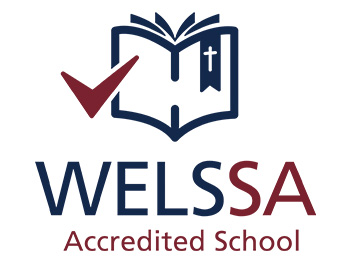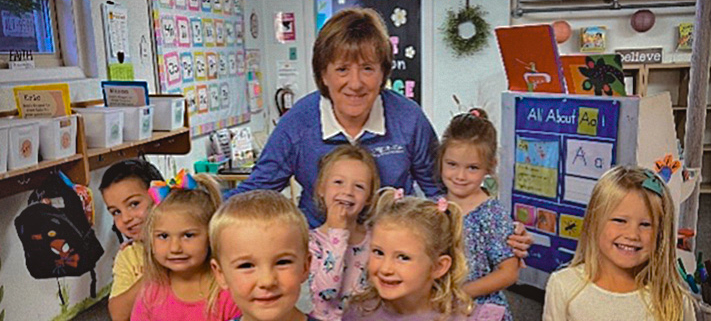20 years of WELS schools accreditation
WELS Schools Accreditation (WELSSA) is marking 20 years of helping WELS schools provide the assurance of a quality, Christ-centered education to families.
Mr. Paul Patterson, associate director of the WELS Commission on Lutheran Schools, says, “Accreditation is really about assurance. You’re being assured that you’re doing the things that good schools should be doing and that you are meeting the needs of students. It’s assurance that the ministry aspect of what you’re doing is active and working, so that the gospel is spread.”
 The WELSSA accreditation process reviews and evaluates a school’s mission and if it’s faithful to that mission, the business and administration practices of the school, policies (such as safety), curriculum, the facility itself, and how student services are being offered.
The WELSSA accreditation process reviews and evaluates a school’s mission and if it’s faithful to that mission, the business and administration practices of the school, policies (such as safety), curriculum, the facility itself, and how student services are being offered.
Patterson explains: “Accreditation is a two-part improvement process that a congregation would go through. The first part of accreditation is a self-study. A self-study is a congregation looking at a set of standards and identifying if they have or are doing the things listed in those standards. The second part of accreditation is a peer review. So, you bring in people from nearby schools or from other parts of the United States who verify that self-study. If a school is meeting 85 percent of our standards, then we recommend that the Commission on Lutheran Schools, WELSSA’s governing board, accredits the school.”
While the initial accreditation process takes about 15 months, it is not a program to simply put a stamp on a school to declare it “good,” but rather it’s a process of continual improvement and ongoing evaluation.
Once a school is accredited, it provides annual reports of the school’s progress on the recommended improvement plans and is re-evaluated every six years. To begin the WELSSA accreditation process, school leaders can contact the office of the Commission on Lutheran Schools to get started.
Currently, 162 WELS schools are accredited by WELSSA—about 50 percent of Lutheran elementary schools and high schools and about 25 percent of early childhood programs. Due to the regulatory and accreditation policies in some states, some WELS schools also receive accreditation from other agencies. In total, 60 percent of WELS elementary schools, 85 percent of high schools, and 40 percent of early childhood programs are accredited through a recognized agency in their state.
“The benefit of WELSSA is that we have standards in place that help schools remain distinctively Lutheran, and we want to encourage our schools to embrace the beauty of the truths we have in our Lutheran Confessions and our understanding of how God comes to us in the means of grace,” says Patterson.
He concludes, “We are so thankful for God’s grace for the 20 years he has allowed this program to exist. We pray that his grace would continue to help schools improve so that families who send their kids to our schools can know their kids are getting a great education and they are being connected to Jesus.”

